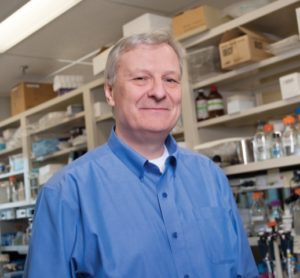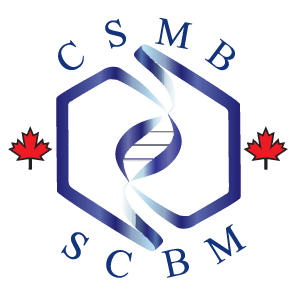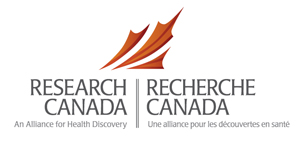2018 CSMB New Investigator Award
Katey Rayner, University of Ottawa, Ottawa, ON, Canada
 Katey Rayner is an Assistant Professor at the University of Ottawa Heart Institute in the Department of Biochemistry in Ottawa, Canada where she directs the Cardiometabolic microRNA Laboratory. Dr. Rayner obtained her BSc from the University of Toronto, and her PhD from the University of Ottawa. Dr. Rayner’s doctoral work focused on the role of hormones, heat shock proteins and macrophage foam cells in the development of atherosclerosis. After her PhD, she pursued a postdoctoral fellowship first at Massachusetts General Hospital then at New York University School of Medicine where Dr. Rayner helped to discover a role for microRNAs, specifically microRNA-33, in the regulation of HDL and its atheroprotective effects.
Katey Rayner is an Assistant Professor at the University of Ottawa Heart Institute in the Department of Biochemistry in Ottawa, Canada where she directs the Cardiometabolic microRNA Laboratory. Dr. Rayner obtained her BSc from the University of Toronto, and her PhD from the University of Ottawa. Dr. Rayner’s doctoral work focused on the role of hormones, heat shock proteins and macrophage foam cells in the development of atherosclerosis. After her PhD, she pursued a postdoctoral fellowship first at Massachusetts General Hospital then at New York University School of Medicine where Dr. Rayner helped to discover a role for microRNAs, specifically microRNA-33, in the regulation of HDL and its atheroprotective effects.
Since establishing her lab at the University of Ottawa, Dr. Rayner’s research program focuses on novel mechanisms that underlie the inflammatory processes of plaque progression and vulnerability, with a specific focus the intersection between macrophage inflammation and microRNAs as drivers of disease. Her group has uncovered a novel role for microRNA control of mitochondrial respiration in macrophage cholesterol efflux. Dr. Rayner’s research also examines how extracellular microRNAs are mediating the progression of atherosclerosis in both human and animal models. More recently, her group uncovered a role for programmed necrosis in the development of unstable plaques in mice and how this can be a therapeutic and diagnostic biomarker in humans.
Dr. Rayner has been recognized with awards such as the American Heart Association’s Irvine H Page Young Investigator Award, the Early Researcher Award from the Ministry of Innovation Ontario, and New Investigator Awards from both Canadian Institutes for Health Research and the Heart & Stroke Foundation. Dr. Rayner’s research is currently funded by the Canadian Institutes for Health Research, the Heart and Stroke Foundation of Canada and the National Institutes of Health.
2018 Canadian Science Publishing Senior Investigator Award
Richard Rachubinski, University of Alberta, Edmonton, AB, Canada
 Richard Rachubinski is Distinguished University Professor and Chair of the Department of Cell Biology, Faculty of Medicine & Dentistry, at the University of Alberta. Rick is now in his fifth five-year term, and has excelled in research, department building and administration, mentoring of research trainees and service to the scientific community.
Richard Rachubinski is Distinguished University Professor and Chair of the Department of Cell Biology, Faculty of Medicine & Dentistry, at the University of Alberta. Rick is now in his fifth five-year term, and has excelled in research, department building and administration, mentoring of research trainees and service to the scientific community.
Dr. Rachubinski has been investigating and elucidating the molecules and mechanisms controlling the biogenesis of peroxisomes, membrane enclosed organelles involved in lipid metabolism and the detoxification of reactive oxygen species. Peroxisomes are essential for human survival, a fact underscored by the existence of a number of inherited genetic disorders, collectively called the peroxisome biogenesis disorders (PBDs), resulting from dysfunction of peroxisome biogenesis. Dr. Rachubinski has defined how peroxisomes are made in cells, identified and characterized a number of genes (PEX genes) required for peroxisome biogenesis whose mutation causes the PBDs, elucidated how peroxisomes are inherited by cells to maintain the benefits of having peroxisomes, and developed an insect model of the PBDs that allows for the rapid screening of potential therapeutics to treat the disorders.
Dr. Rachubinski was an MRC Postdoctoral Fellow, Scholar, Scientist and Senior Scientist; a Howard Hughes Medical Institute International Research Scholar (three terms); and a Tier I Canada Research Chair in Cell Biology. He is a Fellow of the Royal Society of Canada, the Canadian Academy of Health Sciences, and the American Association for the Advancement of Science. He received the Royal Society of Canada’s Queen Elizabeth II Diamond Jubilee Medal in 2013.
Dr. Rachubinski served as a member of the Advisory Board of the CIHR Institute of Genetics, a member of the Medical Advisory Board of the Canada Gairdner Foundation and co-chair of the Foundation’s Medical Review Panel. In 2010 and 2012 he was Chair of the Genomics Research in Human Health Committee for Genome Canada.
Dr. Rachubinski’s work is internationally recognized and has been instrumental in taking what was once a rather obscure organelle with obscure diseases about which little was known and catapulted it into the mainstream of both basic scientific and clinical investigation.
2018 CSMB Arthur Wynne Gold Medal
Mona Nemer, Chief Science Advisor, Ottawa, ON, Canada
 Dr. Mona Nemer is Canada’s Chief Science Advisor. Her main role is to advise the Prime Minister and the Minister of Science on science issues.
Dr. Mona Nemer is Canada’s Chief Science Advisor. Her main role is to advise the Prime Minister and the Minister of Science on science issues.
Before becoming the Chief Science Advisor, Mona Nemer was Professor and Vice-President, Research, at the University of Ottawa and Director of the Molecular Genetics and Cardiac Regeneration Laboratory.
Her research focused on the heart, particularly on the mechanisms of heart failure and congenital heart diseases. She is the author of over 200 highly cited publications that have appeared in prestigious scientific journals. Her work has contributed to the development of diagnostic tests for heart failure and the genetics of cardiac birth defects. She has trained over 100 students from various countries.
Dr. Nemer has served on several national and international advisory committees and executive boards, and is the recipient of many national and international honours. She is a Member of the Order of Canada, a fellow of the Academy of Sciences of the Royal Society of Canada, a fellow of the American Academy of Arts and Sciences, a Knight of the Ordre national du Québec and a Knight of the French Republic’s Ordre national du Mérite. She has also been awarded honorary doctorates from France and Finland.
Dr. Nemer holds a PhD in Chemistry from McGill University. Prior to joining the University of Ottawa, she was a Professor of Pharmacology at the Université de Montréal and directed the Cardiac Genetics Unit at the Montreal Clinical Research Institute.
2018 CSMB Arthur Wynne Gold Medal
Jim Woodgett, Lunenfeld-Tanenbaum Research Institute, Toronto, ON, Canada
 Dr. Jim Woodgett is Director of the Lunenfeld-Tanenbaum Research at Sinai Health System and a Professor in the Department of Medical Biophysics, University of Toronto. He received his Ph.D. in biochemistry in 1984 from the University of Dundee, Scotland with Philip Cohen and then pursued postdoctoral research at the Salk Institute with Tony Hunter where he worked from 1984 to 1987 on the biochemical and molecular genetic characterization of protein kinases. He then moved to London, England to set up a research group at the Ludwig Institute for Cancer Research at the Middlesex Hospital where he isolated and characterized the genes for several key cellular regulators including Glycogen Synthase Kinase-3, Protein Kinase B/Akt and the Stress-Activated Protein Kinases (JNKs).
Dr. Jim Woodgett is Director of the Lunenfeld-Tanenbaum Research at Sinai Health System and a Professor in the Department of Medical Biophysics, University of Toronto. He received his Ph.D. in biochemistry in 1984 from the University of Dundee, Scotland with Philip Cohen and then pursued postdoctoral research at the Salk Institute with Tony Hunter where he worked from 1984 to 1987 on the biochemical and molecular genetic characterization of protein kinases. He then moved to London, England to set up a research group at the Ludwig Institute for Cancer Research at the Middlesex Hospital where he isolated and characterized the genes for several key cellular regulators including Glycogen Synthase Kinase-3, Protein Kinase B/Akt and the Stress-Activated Protein Kinases (JNKs).
In 1992 Dr. Woodgett moved to the Ontario Cancer Institute in Toronto where his lab focused on the signal transduction mechanisms underscoring malignant growth, degenerative diseases and diabetes. He also identified pathways regulating several transcription factors and generated the first mouse models for evaluation of GSK-3 functions and showed it was a physiological target of lithium. In 2005, he was appointed the fourth director of the Samuel Lunenfeld Research Institute at Mount Sinai Hospital where he has continued his work on GSK-3 and has discovered mechanisms to maintain the pluripotentiality of stem cells as well as studied the molecular etiology of breast cancer.
Of his 280 publications to date, over one third relate to GSK-3 and date back to the last chapter of his PhD thesis, highlighting long time-lines associated with pursuit of fundamental biological science. Over that time, he has trained over 40 students and fellows who have gone on to even more interesting things around the world.
Dr. Woodgett is a Fellow of the Royal Society of Canada and has been a Howard Hughes Medical Institute International Scholar as well as an MRC Scientist and CIHR Senior Investigator. More recently, he’s played key roles in Canadian science funding including remediation of CIHR and a community builder for support for the Naylor report on fundamental science. He’s cautiously optimistic the 2018 Federal budget will begin to restore Canada’s place in support of scientific research.








